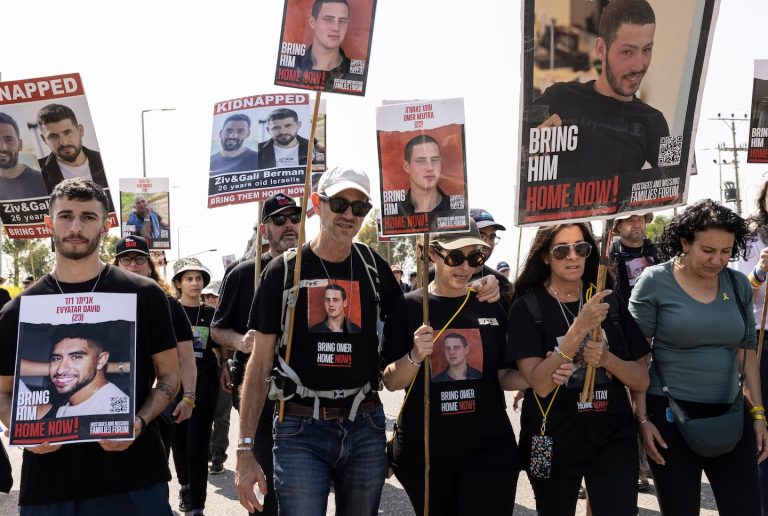How long will the ceasefire last?
Vice President Harris said on Sunday that the agreement would include an immediate ceasefire for at least six weeks, the longest since a week-long pause that ended in December. The humanitarian truce facilitated the exchange of hostages for prisoners and the delivery of aid. The Washington Post reported in November that ceasefires generally last longer than these pauses.
White House officials, speaking on the condition of anonymity under ground rules set by the White House for briefing reporters, said Saturday that the framework would include releasing Hamas hostages and allowing more aid.
Gazans are suffering from a desperate and worsening humanitarian crisis, partly due to Israeli restrictions on aid. Harris and President Biden recently said that Israel should allow more aid into Gaza.
What is the status of the negotiations?
Talks involving Egypt, Qatar and the United States are taking place on Sunday in Cairo, but an agreement does not appear to be imminent.
Israel will not send a high-level delegation to Egypt until Hamas responds to questions about the framework, an Israeli official familiar with the negotiations told The Washington Post over the weekend, speaking on the condition of anonymity to discuss the sensitive talks.
Israeli media reported that the questions were about the number and identities of hostages held by Hamas and the Israeli prisoners who would be exchanged.
White House officials said that an agreement was close.
“The framework is in place,” a senior administration official said Saturday at a news conference. The Israelis have essentially signed off on the elements of this arrangement. Now the ball is in Hamas’ court.”
On Sunday, Harris said it was up to Hamas to accept the plan.
“Hamas claims that it wants a ceasefire,” she said during a speech she delivered in Alabama. “Well, there's a deal on the table.”
The Washington Post reported that the details have hindered progress in negotiations since January, and Israeli Prime Minister Benjamin Netanyahu rejected the ceasefire framework in February.
A White House official said on Saturday that “vulnerable hostages” would be available for release in the first phase of the agreement. The definition of this group has been a point of contention, but it loosely includes the sick, wounded, the elderly, and women.
The Israeli government estimated as of Tuesday that about 100 hostages remained in Gaza, although it had not provided the full basis for its estimates. It is unclear how many prisoners Israel will release in exchange for some of the hostages. Hamas said it would release all hostages if Israel withdraws all its forces. Israel said it would not stop fighting until it eliminated Hamas.
At least 30,534 people have been killed and 71,920 others injured in Gaza since the war began, according to the Gaza Ministry of Health, which does not distinguish between civilians and combatants. Israel estimates that about 1,200 people were killed in the Hamas attack on October 7, and says that 246 soldiers have been killed since the start of its military operation in Gaza.
Why do mediators hope to reach an agreement before Ramadan?
Ramadan is the holiest period in the Islamic calendar, and is celebrated as a month of fasting. From dawn to dusk during Ramadan, adult Muslims abstain from food, drink, smoking and sexual relations.
The holy month, which begins this year at sunset on Sunday, is celebrated by Muslims around the world as a time of religious gatherings and prayer, but it has historically been a flashpoint in the Israeli-Palestinian conflict. Last year, Israeli police raided the Al-Aqsa Mosque in Jerusalem and arrested Palestinian worshipers during Ramadan, leading to a bloody exchange of blows between Hamas and Israel.

